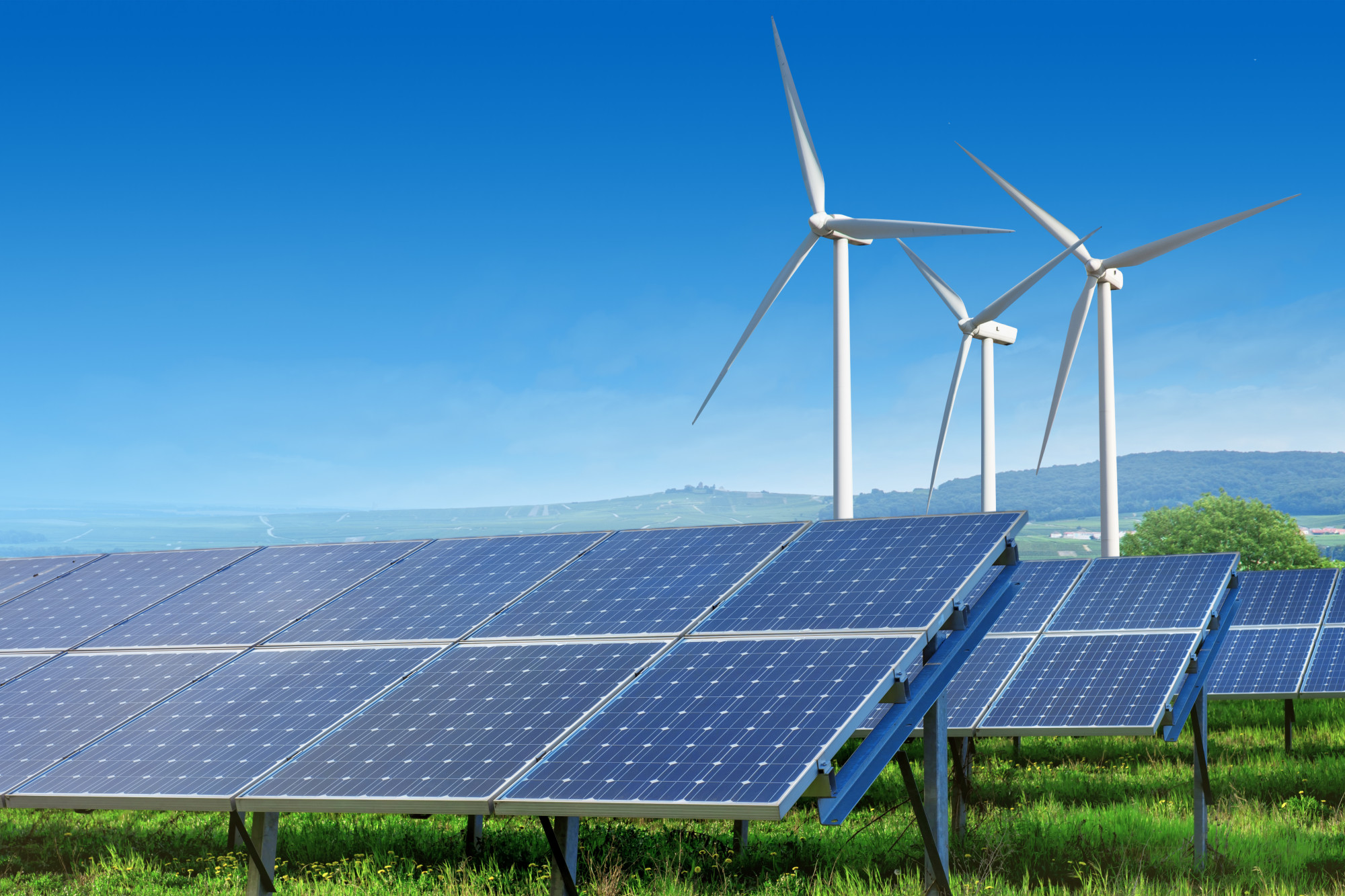The Benefits of Renewable Energy
In each of us is a desire to help our planet, one that is burning ever hotter by the minute. Yet, it isn’t always straightforward to know how to go about doing that. Luckily, one of the more tangible options is in the arena of renewable energy.
What this means to you is that a majority of American adults are encouraging the production of wind and solar power to create electricity. But the benefits of renewable energy largely remained something we could only guess at.

So what are these advantages? Getting these answers will make it easier for you to get on board with the world’s push toward going green.
Discover what you may be missing with this quick and useful guide.
What Is Renewable Energy?
Before digging into the benefits of renewable energy, it is essential to understand first what it is. It’s also important to know the different types of energy.
Renewable energy is often created from naturally replenishing sources. This includes the sun, moon, wind, rain, tides, or geothermal heat.
Renewable energy can provide electricity, heating and cooling, and transportation fuel. It can also produce clean, renewable biofuel for agricultural, industrial, and commercial use.
In addition, renewable energy can help produce food, medicines, materials, and industrial products.
The Different Types of Renewable Energy
Renewable energy sources come in many forms. These include solar, wind, biomass, geothermal, hydropower, and wave energy.
Solar Energy
Solar energy is one of the most popular forms of renewable energy. It is a free and renewable source of energy that is generated from the sun’s radiation.
This form of energy is generated by the use of photovoltaic technology. Solar panels capture the sun’s energy and convert it into electricity that can be used for various purposes.
Wind Energy
Wind energy is one type of renewable energy that is harnessed by wind turbines that are connected to a generator. These turbines capture the wind’s kinetic energy and convert it into electricity.
Biomass
Biomass is the oldest source of renewable energy. It has been used for centuries in the form of wood and charcoal. It is an organic matter which includes:
- Agricultural and forestry residue
- Animal wastes
- Food and yard waste
- Energy crops
Biomass can generate electricity via combustion, gasification, and direct conversion.
Geothermal Energy
Geothermal energy is heat energy that is generated and stored in the Earth. It is tapped by drilling a hole into the ground, allowing hot water or steam to flow from the Earth’s core.
Hydroelectric Energy
Hydroelectric energy is generated through the movement of falling or flowing water. This type of energy is usually generated by dams.
It involves capturing the energy of the water as it moves through the force of gravity. The potential energy of the water is converted to kinetic energy. Then it is used in turbines and generators.
This energy is then converted into electricity and is stored in reservoirs. It’s pumped back into the system in times of high demand.
Wave Energy
Wave energy is a form of renewable energy that harnesses the energy of ocean waves to generate electricity.
Unlike other renewable sources such as solar and wind, wave energy does not need to be installed onshore. Instead, wave energy devices such as buoys, underwater turbines, and oscillating water columns are placed in the ocean. The kinetic energy of waves is then converted into electrical power through a machine known as a Wave Energy Converter (WEC).
The Environmental Benefits of Renewable Energy
The environmental benefits of renewable energy are vast and undeniable. These include the following:
More Environmentally Friendly
Compared to traditional energy sources, renewable energy sources are much more environmentally friendly. They produce fewer pollutants and greenhouse gases.
Reduce the Levels of Global Warming and Climate Change
Using renewable energy sources can help to reduce the levels of global warming and climate change. These sources of energy are much more efficient. They are not as harmful to the planet.
These sources use naturally occurring sources to generate electricity. This keeps the air cleaner. It minimizes the effects of global warming and climate change.
Conserve the Natural Resources of the Planet
Renewable energy is a great way to conserve the natural resources of the planet. They are clean and inexhaustible. This reduces the need to use up finite resources such as fossil fuels.
They also help reduce our reliance on other environmental resources. An example of this is the use of water for cooling in power plants.
They also help to conserve land and water resources. This is by extracting less water per unit of energy produced than traditional energy sources.
Reduce the Amount of Waste That Is Created
Using renewable energy sources can help reduce the environmental impact of energy production and consumption. Renewables will create less waste because they need fewer materials to produce electricity. This helps save the environment for future generations.
Moreover, the use of renewable energy reduces the risk of environmental disasters. These include oil spills and nuclear meltdowns.
Jobs and Other Economic Benefits of Renewable Energy
The use of renewable energy not only provides an environmentally friendly way to power our homes, businesses, and industries. They also offer major economic benefits.
Renewable energy sources like solar, wind, and hydropower create jobs in installing, operating, and maintaining the facilities. These jobs are necessary to ensure the sustainability of renewable energy sources. Furthermore, these jobs provide economic advantages to the communities that employ them.
Installation jobs create temporary positions for construction and installation workers. Meanwhile, operating and maintenance jobs provide long-term positions that create economic stability.
In addition to job creation, renewable energy brings additional economic benefits. This includes the following:
Reduced Demand for Traditional Energy Sources
As renewable energy sources become more prevalent, the cost of producing energy with traditional methods will increase. This will result in a lower output of traditional energy sources. This, in turn, reduces dependence on conventional energy sources, lessening the effect of volatile prices in the energy market.
Cost Savings Through Energy Efficiency
The economic benefits of renewable energy are many. Cost savings through energy efficiency can be one of them.
As renewable energy sources produce free energy, they offer a significant cost savings opportunity compared to traditional energy sources. These alternative energy sources provide savings through the elimination of costly utility bills. They also help to reduce demand for the natural gas and electricity grids.
These cost savings can also be translated into further investments in efficiency measures. These include the following:
- Installation of energy-efficient appliances
- Installation of LED lighting
- Replacing current heating and cooling systems
Increased Energy Security
Increased energy security is one of renewable energy sources’ most important economic benefits. Unlike oil and gas, renewable energy sources such as wind and solar are abundant, free. They cannot be owned by any one country or corporation.
This reduces the risk of being held hostage to another nation’s traditional fossil fuel supply. It also reduces the risk of price fluctuations after a geopolitical event.
This improved energy security from renewable sources helps protect a nation’s critical energy infrastructure from being targeted or disrupted during a conflict. This economic benefit from increased energy security helps drive job growth and investment, which are essential to a nation’s economy.
Reduced Reliance on Imported Energy Sources
With renewable energy sources, there is the potential to end dependence on foreign sources of energy. You could remain independent regardless of economic or political upheaval in other countries.
With fewer points of entry for an attack, resources can be more secure. The economic health of a nation is better protected.
Increased reliance on domestic renewable sources can provide greater stability and predictability about energy costs. These are essential for businesses and consumers to remain competitive and consume more goods and services.
The Cost Advantages of Renewable Energy Sources
Renewable energy sources offer many cost advantages over traditional forms of energy. They are:
Cheaper Than Natural Gas or Coal
Using renewable energy sources is much cheaper than natural gas or coal. There aren’t any extra costs associated with environmental damage or pollution caused by these sources.
Additionally, renewable energy sources are free and widely available. This makes it cheaper than relying on traditional fossil fuels.
Many local and federal governments in countries all over the world are also taking steps. They are helping to promote the use of renewable energy. This has led to more affordable prices for households and businesses.
Long-Term Price Stability
Renewable energy sources are generally low-cost. It’s because they do not need costly operational and maintenance costs. And since these sources are renewable, the amount of energy produced does not depend on the fluctuating price of a commodity.
Fossil fuel prices will continue to rise. But the cost of renewable energy remains stable, resulting in long-term price stability.
This stability provides much-needed economic certainty. It allows businesses and consumers to plan and securely budget more.
Decreases the Cost of Infrastructure
The implementation of solar and other renewable energy sources decreases the cost of infrastructure. They cut the need for transmission lines to bring power from distant power plants.
This reduces the need for new power production installations. This helps further in cutting costs for energy producers.
Savings on Energy Bills
The cost benefits of renewable energy are undeniable. This is when it comes to saving money on energy bills. Switching to renewable energy can result in up to 20% savings in monthly utility bills.
The use of renewable energy sources can also benefit businesses and governments. This is through tax breaks and a decrease in energy prices.
And since there’s widespread adoption of renewable energy sources, this will reduce the dependence on earth resources. This can prevent future energy cost spikes down the line.
The Ease of Installation and Maintenance
Renewable energy is becoming popular for many reasons, especially when it comes to ease of installation and maintenance. Many renewable energy systems require significantly less overhead in installation and maintenance. It’s because they generally only need a little construction or digging.
Solar panels, for example, only need some discrete mounting brackets and wiring. Solar panel installation can be handled, from start to finish, in a relatively short timeframe.
Maintenance is quite straightforward and can be done by the homeowner or a professional. It usually involves cleaning the panels to remove dirt and debris, correcting minor wiring issues, and replacing damaged components.
The same goes for wind turbines. The only thing they need is some occasional maintenance on the blades and propeller.
Moreover, many renewable energy systems are designed to be user-friendly. They are backed by comprehensive warranties, which means no maintenance and no worry about breakages or repairs.
The ease of installation and maintenance and the availability of long-term warranties make renewable energy an attractive option for those seeking cost-effective energy solutions.
The Benefits of Renewable Energy on People’s Health
Renewable energy has many benefits for people, particularly improved health. Renewable energy sources such as solar, wind, and geothermal eliminate air pollutants and reduce greenhouse gas emissions.
Since these renewable sources do not need burning fossil fuels, the amount of particulate matter and carbon dioxide in the air is reduced. This means fewer asthma, bronchitis, lung cancer, and other respiratory diseases related to hazardous air pollutants.
As renewable energy sources like solar and wind become more available and the use of fossil fuels decreases, the air quality can improve.
Additionally, the use of renewable energy is beneficial for human health. It’s because the sources do not emit toxic substances such as mercury or sulfur dioxide. These can lead to numerous chronic health consequences.
Renewable energy also reduces environmental noise levels. This can lead to better mental and physical health.
Finally, renewable energy helps reduce demands on water resources. This means more access to clean and safe water for daily needs.
Invest in Renewable Energy Today
Renewable energy is a cost-effective and clean option for powering our world. The benefits of renewable energy must be noticed. It is critical to mitigating climate change and promoting a more sustainable future.
Now is the time to explore the renewable energy options available to your community. Invest in your future and support renewable energy today!
Do you want to find more helpful info? Check out more of our guides on our blog today!


